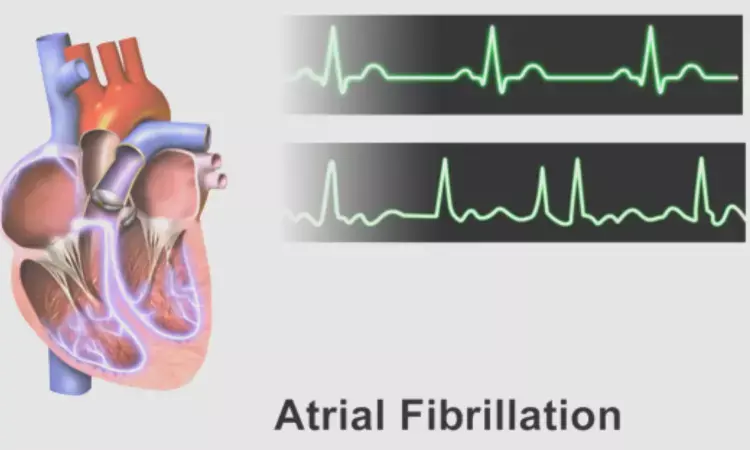- Home
- Medical news & Guidelines
- Anesthesiology
- Cardiology and CTVS
- Critical Care
- Dentistry
- Dermatology
- Diabetes and Endocrinology
- ENT
- Gastroenterology
- Medicine
- Nephrology
- Neurology
- Obstretics-Gynaecology
- Oncology
- Ophthalmology
- Orthopaedics
- Pediatrics-Neonatology
- Psychiatry
- Pulmonology
- Radiology
- Surgery
- Urology
- Laboratory Medicine
- Diet
- Nursing
- Paramedical
- Physiotherapy
- Health news
- Fact Check
- Bone Health Fact Check
- Brain Health Fact Check
- Cancer Related Fact Check
- Child Care Fact Check
- Dental and oral health fact check
- Diabetes and metabolic health fact check
- Diet and Nutrition Fact Check
- Eye and ENT Care Fact Check
- Fitness fact check
- Gut health fact check
- Heart health fact check
- Kidney health fact check
- Medical education fact check
- Men's health fact check
- Respiratory fact check
- Skin and hair care fact check
- Vaccine and Immunization fact check
- Women's health fact check
- AYUSH
- State News
- Andaman and Nicobar Islands
- Andhra Pradesh
- Arunachal Pradesh
- Assam
- Bihar
- Chandigarh
- Chattisgarh
- Dadra and Nagar Haveli
- Daman and Diu
- Delhi
- Goa
- Gujarat
- Haryana
- Himachal Pradesh
- Jammu & Kashmir
- Jharkhand
- Karnataka
- Kerala
- Ladakh
- Lakshadweep
- Madhya Pradesh
- Maharashtra
- Manipur
- Meghalaya
- Mizoram
- Nagaland
- Odisha
- Puducherry
- Punjab
- Rajasthan
- Sikkim
- Tamil Nadu
- Telangana
- Tripura
- Uttar Pradesh
- Uttrakhand
- West Bengal
- Medical Education
- Industry
Metoprolol or diltiazem, which is better for rate control in atrial fibrillation?

USA: A study published in Annals of Pharmacotherapy comparing two drug classes for controlling ventricular rate in patients with atrial fibrillation (AF) found no significant difference in achieving rate control in those treated with either metoprolol or diltiazem.
The researchers did not identify any between-group differences that would suggest benefit or harm with one agent compared to another for controlling atrial fibrillation's acute rate. "Adverse events were rare and occurred at comparable rates between patients treated with metoprolol and diltiazem," Sheng Qi Xiao, Community Regional Medical Center, Fresno, CA, USA, and colleagues wrote in their study.
Currently, there is no clarity on whether nondihydropyridine calcium channel blockers or β-blockers are preferred for the acute management of atrial fibrillation. Considering this, the research team aimed to compare the efficacy and safety of intravenous (IV) metoprolol and diltiazem for rate control and determine which is better for managing ventricular rate.
For this purpose, the researchers conducted a single-center, retrospective cohort study of people presenting to the emergency department with AF with a rapid ventricular rate between 2015 and 2019 who received diltiazem or metoprolol.
The percentage of patients who achieved rate control (primary outcome) was a heart rate < 100 beats per minute. Secondary outcomes were the time to rate regime, the incidence of cardioversion, the percentage of patients needing additional agents for rate control, hypotension, and bradycardia.
A total of 200 patients, 100 in each arm, were included in the study.
The study led to the following findings:
- Significantly more patients treated with diltiazem were not taking any rate-controlling medications before admission (37% vs. 10%).
- Rate control was achieved in 35% and 41% of the metoprolol and diltiazem groups, respectively.
- The researchers did not find any significant differences in the number of doses required to achieve rate control between groups.
- The mean time to achieve rate control was also not statistically different among patients receiving metoprolol or diltiazem (35 vs. 21 minutes).
- Adverse events were rare and not significantly different between groups, with one patient experiencing hypotension (metoprolol) and four requiring cardioversion (one metoprolol, three diltiazem).
- No patients experienced bradycardia.
To conclude, there was no difference between IV metoprolol and diltiazem for the achievement of rate control. Also, the team did not identify any patient-specific factors that would impact the preferential use of one medication over the other.
"To date, this is the largest study comparing the two classes of agents for acute rate control in AF," the authors wrote. "The study, although is a retrospective evaluation of a relatively small sample, the findings support current practice guidelines that do not recommend using one agent over the other for this indication."
Reference:
Intravenous Metoprolol Versus Diltiazem for Rate Control in Atrial Fibrillation. Ann Pharmacother 2022;56:916-921
Dr Kartikeya Kohli is an Internal Medicine Consultant at Sitaram Bhartia Hospital in Delhi with super speciality training in Nephrology. He has worked with various eminent hospitals like Indraprastha Apollo Hospital, Sir Gangaram Hospital. He holds an MBBS from Kasturba Medical College Manipal, DNB Internal Medicine, Post Graduate Diploma in Clinical Research and Business Development, Fellow DNB Nephrology, MRCP and ECFMG Certification. He has been closely associated with India Medical Association South Delhi Branch and Delhi Medical Association and has been organising continuing medical education programs on their behalf from time to time. Further he has been contributing medical articles for their newsletters as well. He is also associated with electronic media and TV for conduction and presentation of health programs. He has been associated with Medical Dialogues for last 3 years and contributing articles on regular basis.
Dr Kamal Kant Kohli-MBBS, DTCD- a chest specialist with more than 30 years of practice and a flair for writing clinical articles, Dr Kamal Kant Kohli joined Medical Dialogues as a Chief Editor of Medical News. Besides writing articles, as an editor, he proofreads and verifies all the medical content published on Medical Dialogues including those coming from journals, studies,medical conferences,guidelines etc. Email: drkohli@medicaldialogues.in. Contact no. 011-43720751


